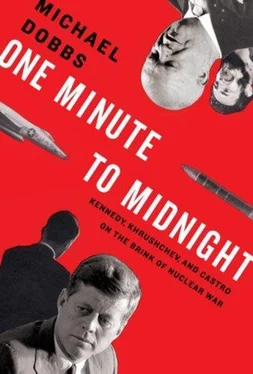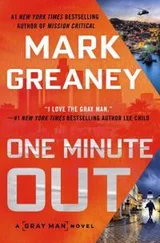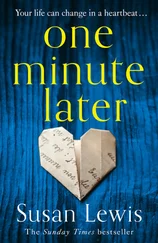“We are very, very close to war,” he told them gravely, before deflating the moment with his mordant Irish wit. “And there is not room in the White House shelter for all of us.”
3:00 P.M. MONDAY, OCTOBER 22 (10:00 P.M. MOSCOW)
Night had already fallen in Moscow when Nikita Khrushchev learned that his great missile gamble had probably failed. Reports had been arriving all evening of unusual activity at the White House and the Pentagon, culminating in the news that the president had requested airtime from the networks to address the American people on a matter of the “highest national urgency.” The time set for the broadcast was 7:00 p.m. Eastern Daylight Time, 2:00 a.m. the following day in Moscow.
The Soviet premier had just returned from a walk around the grounds of his residence on the Lenin Hills when he took the telephone call. He had selected this spot, high above a bend on the Moscow River, for his home because of its fabulous view over the city. It also had a celebrated place in Russian history. One and a half centuries before, on September 16, 1812, Napoleon had stood on this very hill as the conqueror of Europe. What should have been a moment of triumph was transformed by the scorched-earth tactics of the Russian defenders into his most terrible defeat. Instead of the prize he had hoped to claim, the emperor gazed out over a burning, devastated city. A month later, he ordered a general retreat.
“They’ve probably discovered our missiles,” Khrushchev told his son Sergei, as he ordered other members of the Soviet leadership to meet with him in the Kremlin. “They’re defenseless. Everything can be destroyed from the air in one swipe.”
A pair of chaika limousines—one for Khrushchev, one for his securitymen—whisked the Soviet leader across the river. Khrushchev detested nighttime meetings. He had held few, if any, of them in his nine years in power. They reminded him of Stalin’s times, when the dictator would summon his terrified subordinates to the Kremlin in the middle of the night. Nobody had ever known what to expect. An angry glance could be a prelude to promotion. A smile might mean death. It all depended on the tyrant’s whim.
The chaika deposited Khrushchev outside the old Senate Building in the heart of the Kremlin, overlooking Red Square. An elevator took him to his office on the third floor, off a long, high-ceilinged corridor, with an immaculate red runner down the middle. His colleagues were already gathering in the Presidium meeting room two doors down. Although power formally resided in the Soviet government, in practice all important decisions were taken by the Presidium of the Central Committee of the Communist Party. As chairman of the Council of Ministers and first secretary of the Central Committee, Khrushchev headed both power structures simultaneously.
“It’s a pre-electoral trick,” insisted Marshal Rodion Malinovsky, the Soviet defense minister, when the meeting finally got started at 10:00 p.m. “If they were going to declare an invasion of Cuba, they would need several days to get prepared.”
Malinovsky had prepared a decree authorizing Soviet troops on Cuba to use “all available means” to defend the island. The formula alarmed Khrushchev. “If they were to use all means without exception, that would include the [medium-range] missiles,” he objected. “It would be the start of a thermonuclear war. How can we imagine such a thing?”
Khrushchev was a man of many moods. He could switch from ebullience to despair in minutes. Uneducated in any formal sense, he dominated his colleagues through the force of his personality: bold, visionary, and energetic, but at the same time explosive, crafty, and quick to take offense. “He’s either all the way up or all the way down,” was his wife’s description. His long-suffering foreign minister, Andrei Gromyko, testified that Khrushchev had “enough emotion for ten people—at least.” Right now, he was upset with the Americans, but he was also anxious to avoid a nuclear confrontation.
The way Khrushchev saw it, a U.S. invasion of Cuba was a very real possibility. He could not understand why Kennedy had been so indecisive at the Bay of Pigs. When counterrevolutionaries took over Hungary in October 1956, Khrushchev had waited a few days, and then ordered the Soviet army to crush the uprising. That was the way superpowers behaved. It was “only natural,” he observed in his memoirs, many years later. “The U.S. couldn’t accept the idea of a socialist Cuba, right off the coast of the United States, serving as a revolutionary example to the rest of Latin America. Likewise, we prefer to have socialist countries for neighbors because that is expedient for us.”
Stopping an American invasion of Cuba had been the principal motivation for Operation Anadyr, Khrushchev told his colleagues. “We didn’t want to unleash a war, we just wanted to frighten them, to restrain the United States in regard to Cuba.”
The “problem,” he now admitted, was that the Americans had apparently got wind of the operation before it had been completed. If all had gone according to plan, he would have flown to Havana for a triumphant military parade, at which Soviet soldiers would have made their first public appearance in uniform alongside their Cuban brothers. The two countries would have formally signed a defense agreement, sealed by the deployment of dozens of Soviet nuclear missiles, targeted on the United States. The imperialists would have been presented with a fait accompli.
Events had turned out very differently. Several dozen Soviet ships were still on the high seas, together with the intermediate-range R-14 missiles. The medium-range R-12s had been deployed, but most were still not ready to fire. Unbeknownst to the Americans, however, the Soviets had dozens of short-range battlefield missiles on the island, equipped with nuclear warheads capable of wiping out an entire invading force.
“The tragic thing is that they can attack us, and we will respond,” Khrushchev fretted. “This could all end up in a big war.”
He now regretted rejecting Castro’s pleas to sign and announce a defense treaty with Cuba before deploying the missiles, thus avoiding American charges of duplicity. Washington had defense agreements with countries like Turkey, right next to the Soviet Union, and could hardly object to similar actions by Moscow.
Dominating the Presidium debate, Khrushchev outlined possible Soviet responses to the speech that Kennedy was about to deliver. One option was to formally extend the Soviet nuclear umbrella to Cuba by announcing a defense treaty immediately, over the radio. A second was to transfer all Soviet weaponry to Cuban control in the event of an American attack. The Cubans would then announce they intended to use the weapons to defend their country. A final option was to permit Soviet troops on Cuba to use the short-range nuclear weapons to defend themselves, but not the strategic missiles capable of reaching America.
The records of this crucial Presidium meeting are fragmentary and confused. But they suggest that Khrushchev believed that a U.S. invasion of Cuba was imminent and that he was prepared to authorize the use of tactical nuclear weapons against American troops. He was dissuaded from taking a hasty decision by his hawkish defense minister, who believed that the Americans did not have sufficient naval forces in the Caribbean to seize Cuba immediately. Malinovsky feared that a premature move by the Kremlin would do more harm than good. It might even provide an excuse for a U.S. nuclear strike.
The U.S. Embassy in Moscow had informed the Soviet Foreign Ministry that it would transmit an important message to Khrushchev from Kennedy at 1:00 a.m. Moscow time, 6:00 p.m. in Washington. “Let’s wait until one o’clock,” Malinovsky counseled.
Читать дальше












